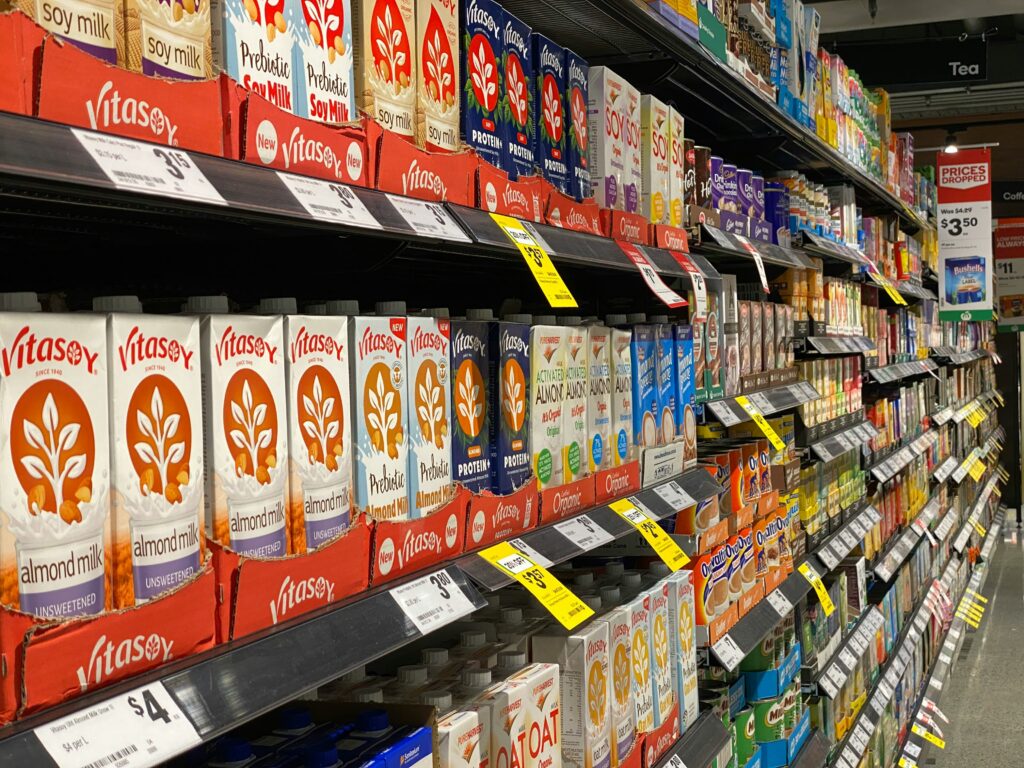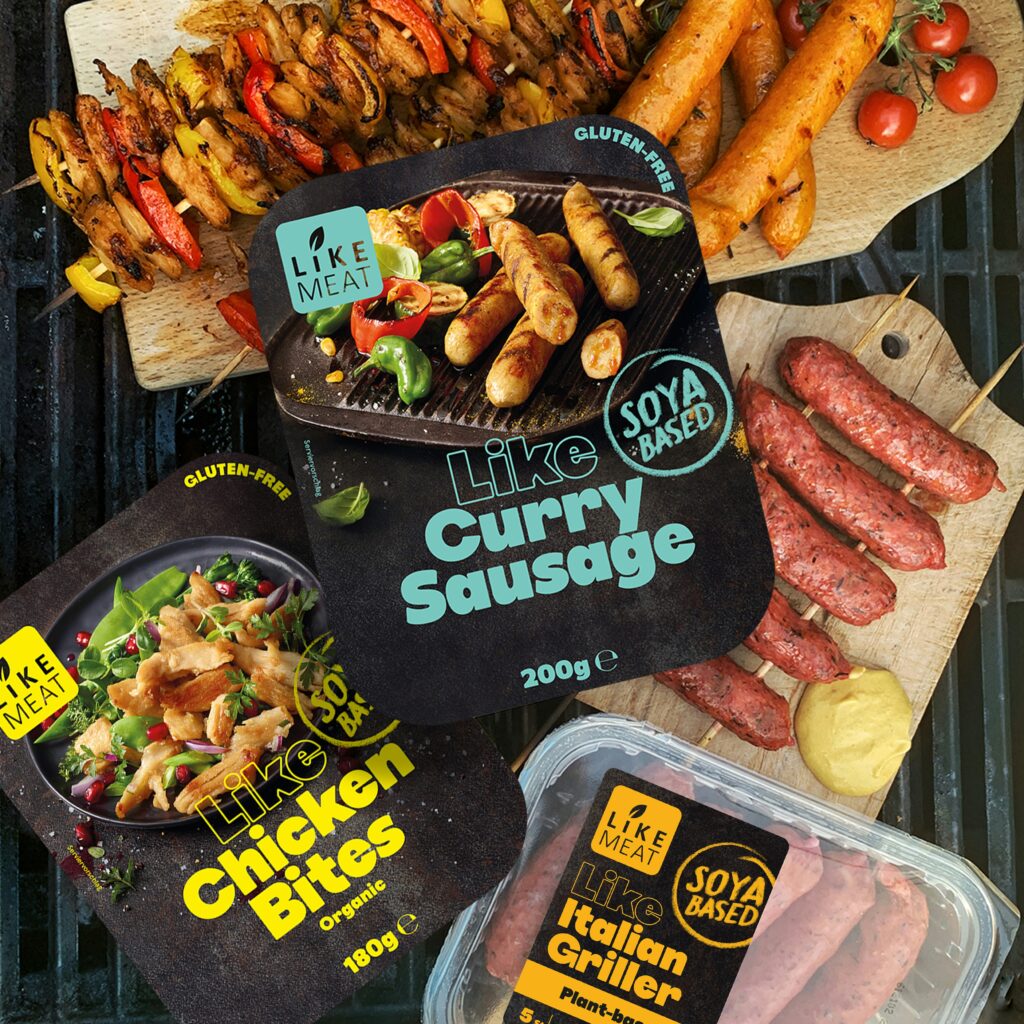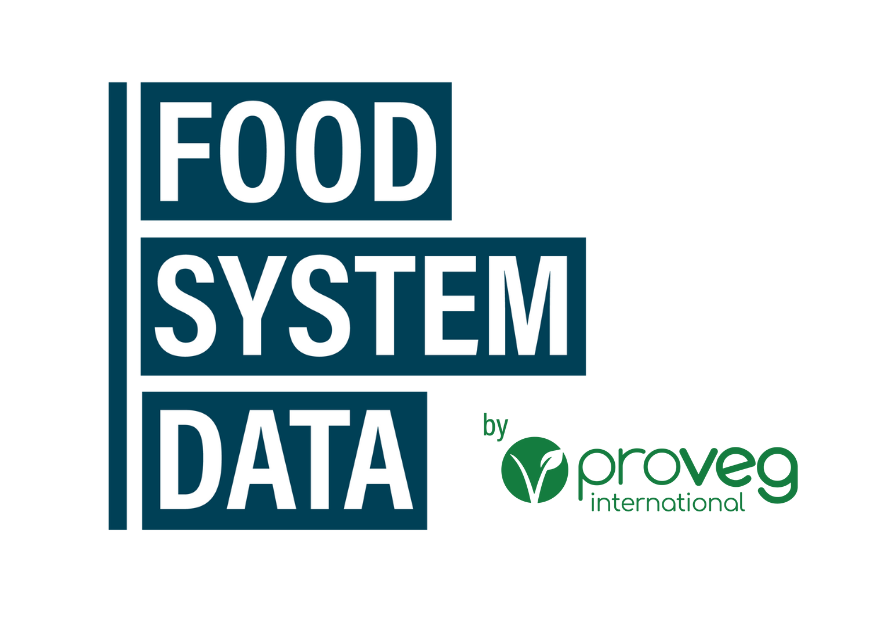Optimize your plant-based sales with these solutions and strategies
The retail landscape for plant-based products has transformed in recent years. In some European countries, supermarkets now have entire aisles dedicated to their plant-based offerings with everything from ‘milk’ to ‘steak’. Interest in this category is no longer limited to the niche vegan segment of consumers but is being led by a growing number of flexitarians.
But, sometimes in retail, products just won’t shift. So, how do we navigate the barriers that keep consumers from popping plant-based products in their baskets?
This article will address common challenges supermarkets face when selling plant-based products. We’ll provide solutions and strategies to help you overcome these obstacles and enable you to optimize your plant-based sales.
Retail challenges and solutions
Challenge: limited consumer awareness and knowledge of plant-based products
- Customers may not be aware of your plant-based options:
When shopping, consumers tend to frequent the same aisles – most people are time-poor and habitual; they might not have seen your plant-based aisle or sought out plant-based products before.
- Misconceptions about taste, nutritional value, and preparation:
Due to a lack of either previous knowledge, in-store information, or sampling, your customers may have pre-conceived ideas about the taste, nutritional value, and preparation of plant-based foods in general – including the products you stock.
Solution: Improve consumer familiarity and understanding
- Implement educational campaigns:
- Use in-store signage, brochures, and digital displays/platforms to inform and educate your customers about the plant-based products you stock and encourage trial.
- Provide information on the benefits of plant-based diets, including health, environmental, and ethical aspects, as well as how tasty these products can be.
- Host cooking demonstrations and sampling:
- Host live cooking demos and sampling events in-store to let customers taste your plant-based products.
- Feature local chefs or nutritionists to showcase recipes and answer questions.
- Collaborate with influencers:
- Partner with food bloggers, chefs, and influencers to promote plant-based products. For example, send a food influencer an assortment of your plant-based products (perhaps the newest addition to your range) and ask them to share an engaging video on Instagram (tagging your store, of course).
- Use social media and in-store events to reach a wider audience.
- Get own-brand products V-Label certified:
- Apply for your own-brand plant-based products to be V-Label certified. The well-recognised and trusted accreditation not only enables customers to spot your plant-based products at a glance, but V-Label is a quick and reliable way of telling people exactly what they are buying, increasing both trust and awareness.

Challenge: higher price point of plant-based products
- Plant-based products often have a higher price compared to traditional products:
Price is a major barrier for consumers. It’s up there with taste when it comes to top purchase motivations. With the inflated cost of living, many consumers will opt for cheaper, more familiar, animal-based products.
- Perceived value versus cost:
Many people shop with perceived value versus cost in mind. If your customers do not think that the value of your plant-based products outweighs their cost, they won’t buy them.
Solution: address price concerns
- Bring down the cost of your plant-based products:
- Create price parity by matching the cost of plant-based products in-store with their animal-based equivalents (or you could even try pricing them lower!). Many European retailers have now done this, with great success. For example, in 2023, Lidl Germany priced-matched their own-brand Vemondo range to animal-based equivalents. They have since seen a 30% increase in plant-based sales.
- Offer promotions and discounts:
- Implement introductory offers, discounts, and loyalty rewards for plant-based purchases to encourage new customers and attract repeat buys.
- Create bulk purchase deals and bundle promotions to offer better value.
- Educate on cost-effectiveness:
- Highlight the long-term cost savings of plant-based diets (many products can be cheaper than common animal-based foods).
- Compare more expensive plant-based products with premium animal-based products to justify the price point. You can do this by placing them next to their animal-based equivalents in aisles and in marketing materials (i.e. leaflets, handouts, adverts).
Challenge: restricted shelf space and poor product placement
- Competing for shelf space with established products:
Shelf space in supermarkets is limited and valuable. Established products like traditional meat and dairy items are essential to many shoppers, have strong brand recognition, and loyal customer bases, which all go together to generate consistent sales. Introducing plant-based products means displacing some of these established items, which is risky if the new products don’t sell as well.
- Finding the optimal placement to attract customers:
Choosing a poor location in the retail store, perhaps in the wrong aisle, or on the wrong shelf can severely impact pick-up-and-purchase rates.
Solution: optimize shelf space and product positioning
- Use an integrated-segregated approach:
- Utilize an ‘integrated-segregated’ approach for product positioning, whereby plant-based products are grouped together, but still positioned within animal-based product aisles, rather than in a completely different part of the store. This merchandising ‘nudge’ takes plant-based products to where the most potential shoppers are, familiarizes shoppers with the products and normalizes their being alongside and on a par with animal-based, as well as demonstrating their utility, and making it as easy as possible for consumers to find and access them.
- Make strategic product placements:
- Increase the visibility of plant-based products and make them stand out. ProVeg recommends the following tactics:
- Place plant-based products in high-traffic areas and near complementary items.
- Rotate products regularly to keep displays fresh and appealing.
- Place products at eye-level.
- Place products at aisle ends.
- Use signage throughout the store, advertising plant-based ranges and related offers.
- Position plant-based items at the front of your store.
- Utilize clear branding or promotional messaging on shelf-edge label strips.
- Use shelf-dividers detailing categories.
- Feature ‘wobblers’ (printed shelf markers that wobble) or ‘bus stops’ (double-sided printed shelf markers or wobblers that highlight a product, offer or price).
- Increase the visibility of plant-based products and make them stand out. ProVeg recommends the following tactics:
- Make data-driven decisions:
- Utilize sales data and customer feedback to make informed decisions about shelf space allocation. Identify underperforming established products that can be replaced or reduced to make room for plant-based items.
- Monitor the performance of plant-based products regularly to ensure they justify their shelf space.
- Gradually integrate new products:
- Introduce plant-based products gradually rather than making abrupt changes. This allows customers to adapt and provides time to assess the performance of new items.
- Start with high-traffic areas and promotional displays to gage customer interest and demand.

Challenge: inefficient supply chain and availability
- Ensuring a consistent supply of plant-based products:
Maintaining a steady supply of plant-based products can be challenging for retailers due to the growing demand and the relatively new nature of these products in the market. Stockouts can frustrate customers and impact sales.
- Dealing with limited availability from suppliers:
Plant-based products often come from smaller, specialized suppliers who might struggle to meet the high demands of supermarkets. Limited production capacity, logistical issues, and supply chain disruptions can lead to inconsistent availability. Retailers may face difficulties in securing enough products to meet customer demand, which can affect their ability to provide a reliable selection of plant-based options.
Solution: improve the supply chain and availability of plant-based products
- Build strong relationships with suppliers:
- Partner with reliable suppliers to ensure a consistent supply of products.
- Work with local producers to reduce lead times and support the community.
- Expand your plant-based product range gradually:
- Start with a core range of popular plant-based products (like sausages, burgers, yogurt, and milk.).
- Gradually expand the product range based on customer demand and feedback.
Challenge: consumer resistance to change
- Resistance from customers who are loyal to traditional products:
People are creatures of habit, preferring to stick to what they know rather than try something new. Getting consumers to switch to a plant-based version of an animal-based product can be difficult when they’re happy with their usual items.
- Cultural and dietary preferences that favor meat and dairy:
Some cultural backgrounds and lifestyles favor foods and recipes that are heavy in meat and dairy. It can be challenging to encourage consumers from these backgrounds to purchase plant-based alternatives, especially when social pressures persist.
Solution: encourage acceptance of plant-based alternatives
- Highlight the benefits of plant-based products and showcase customer testimonials:
- Use customer testimonials and success stories to build trust and credibility (feature these online, on social media, and in your in-store marketing leaflets and signage).
- Emphasize the health benefits, taste, ease, and variety of plant-based products (display these in the same places as above, and on any own-brand product packaging).
- Run inclusive marketing campaigns:
- Market plant-based products to all customers, not just vegans and vegetarians.
- Showcase the versatility and appeal of plant-based foods for various diets and cuisines by handing out plant-based recipe cards in-store, and featuring plant-based recipes in your in-store leaflets/magazines.
- Provide more and better plant-based options:
- The worst thing a retailer can do is supply poor-tasting options, so ensure that the ranges you offer are the best. This is crucial since taste is the top motivator for plant-based purchases. Track and increase their ratio compared to animal-based products, to normalize plant-based options and reduce resistance to change. Get in touch with [email protected] to learn more about our Protein Tracker.

Challenge: lack of staff knowledge and training
- Staff may not be well-informed about plant-based products:
If staff have little knowledge about plant-based products, especially those in your range, they will be unable to help consumers who wish to know more about them, potentially losing you a sale.
- Staff inability to effectively promote and educate customers:
Staff can’t promote or talk about plant-based products in a way that appeals to consumers.
Solution: boost staff expertise and engagement
- Offer comprehensive training programs:
- Train staff on the benefits, uses, and varieties of plant-based products.
- Provide ongoing education and resources to keep staff informed and excited about your plant-based products.
- Empower staff to educate customers:
- Encourage staff to share their knowledge with customers.
- Create a supportive environment where staff can confidently promote plant-based products.
Optimize your plant-based sales
Whether your retail challenges are related to the promotion, placement, staff knowledge, or customer awareness of your plant-based products, we’ve got your back with a comprehensive range of strategies. Here’s a recap of the solutions to some of the most common challenges in plant-based retail:
- Implement educational campaigns.
- Host plant-based cooking demonstrations and sampling.
- Collaborate with food influencers to increase customer awareness.
- Get own-brand products V-Label certified.
- Bring down the cost of your plant-based products.
- Offer promotions and discounts on your range.
- Educate customers on the cost-effectiveness of plant-based products.
- Use an integrated-segregated approach for product positioning.
- Focus on strategic product placement to optimize visibility.
- Make data-driven decisions.
- Build strong relationships with suppliers.
- Expand your plant-based product range gradually.
- Highlight the benefits of plant-based products and showcase customer testimonials.
- Run inclusive marketing campaigns.
- Provide more and better plant-based options.
- Offer comprehensive staff training programs.
- Empower staff to educate customers on plant-based products.
Address retail challenges at the Retailer Roundtable 2024
Want to go a step further and help tackle these retail challenges head-on? On September 4 2024, the day after the New Food Conference, we’re hosting our second Retailer Roundtable in Berlin, Germany – a unique event designed for leading European retailers. This gathering is a key opportunity to discuss and collaborate on accelerating the shift to sustainable food systems.
The program will feature expert sessions and focus groups, providing food for thought and opportunities for dialog. You can learn more about the latest market trends, dive deeper into transparency initiatives (like SuperList and the Protein Tracker), and identify opportunities and hurdles to implementing a plant-based shift in food retail. The full program will be released soon.
Where: Formo Office, Berlin, Germany
When: 9 am– ca. 4:30 pm CEST, September 4, 2024, following the New Food Conference
This exclusive event is free of charge, with limited spots available, so please sign up here by August 2 if you would like to attend.
Together, we can create a retail roadmap to a sustainable food future. Will you help drive the change?





